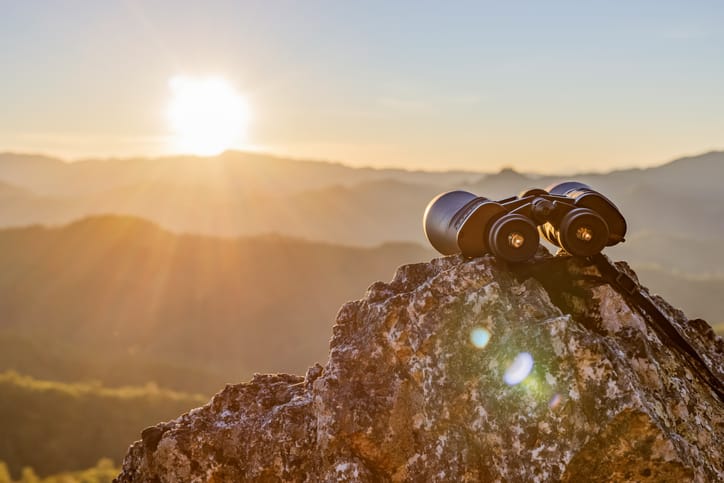Memory Holes and the Bodies of the Future

Happy Friday! What's good?
There's a lot of health technology news to share with you today as I took a break from writing this weekly column over the holidays (other than, ya know, those two massive reviews of the year in food and in fitness tech). So apologies in advance for the lengthy email.
Sure, it'd be easier to just ignore all the things that happen at the end of the year. Certainly, it's a time to stop all the press releases that companies hope no one will notice — say, your support for Nazi content on your platform (which continues over on Substack, to be clear, despite some strangely triumphant reports to the contrary).
A lot of folks — in and outside of tech — believe that they can quickly shove news down the "memory hole," and no one will remember history. (I bet you most tech CEOs can't even tell you where the phrase "memory hole" comes from, even though many are out there building the technologies that SF dystopias warned us about.) Sadly, they're not wrong. Indeed, a core tenet of the Silicon Valley ideology is the destruction of the past as part of an obsessive commitment to the future.
Way way back in October, the US International Trade Commission ordered Apple to stop importing and selling some Apple Watches following a complaint from medical-monitoring technology company Masimo. And while the Biden Administration had until December 25 to intervene, it did nothing; it appeared that the Apple devices would be pulled from shelves. However, a US Court of Appeals temporarily halted the import ban, allowing Apple to continue to sell the devices during its appeals process. I mean, sure, whatever — a bit of non-news news. But see, Apple Watch, I'd argue, is a pretty significant piece of fitness tech. It has been the company's centerpiece in its move into the health tech industry and has been key to the mainstreaming of personal health data (in addition to fitness data) tracking. Apple seems to be going thru a bit of a rough patch in the eyes of investors, and it's no longer "the world's most valuable company." That's now Microsoft, which is riding high on the AI bandwagon (which, let's be clear, is bullshit).
There are rumors circulating (again) that Apple might acquire Peloton — don't hold your breath. I'm not sure what's going to happen in fitness tech this year, but sadly I imagine it's more AI crap than hardware crap. Not that either is particularly "good" for our health and wellbeing.
But we might want to watch how fitness tech changes as our definitions of "athlete" changes. The Apple Watch Ultra, one of the watches on the possible ban list, is geared towards endurance and outdoor athletes — in the minds of the design teams, this means men. It is a very, very big watch. Perhaps Garmin sees an opportunity here to unseat Apple as it just announced a new "small and stylish" smart-watch for women — women are, after all, rapidly increasing their participation rates in endurance sports. Garmin also announced a new heart rate monitor that's designed to work with sports bras.
But before anyone gets too excited about 2024 and declares that this will be the year that the tech industry finally pays attention to women's health, let's remember that Garmin's announcements coincide with CES (the Consumer Electronics Show) in Las Vegas, where technology journalists dutifully parrot the marketing around even the zaniest products: "this changes everything!"
Elsewhere in questionable gadgets: WiFi-connected ear wax cleaners. Compression boots. $500 running shoes. "Hack your metabolism" with this $400 device. Withings, maker of Wifi-enabled scales, now wants you to buy a "BeamO" — a thermometer, stethoscope, pulse oximeter, and EKG — pending FDA approval, LOL. Blood glucose monitors (not for everyone, despite what your favorite podcaster tells you). IV drips and injections at unregulated health spas — I'm shocked! shocked! that this is dangerous. Speaking of shocking, the Katalyst suit will stimulate your muscles as you exercise. For $25,000, the Hurotics H-Fit, an ergonomically designed assistive exoskeleton, will do one better, including "help you correct your form" (I guess making those who spend $500 on those Adidas shoes look a lot less foolish). WIRED loved it, which is really all you need to know.
But wait, there's more! I have a couple of stories in the works for 2024 about the absolute snake oil that is the home testing market — genetic testing, food sensitivity testing, blood testing, microbiome testing etc. (This test, by the way, is particularly fucked up.) The pitch for these is all wrapped up in the failures of the "mainstream" medical profession, in the need for "personalization" — things that, as I noted in my review of Peter Attia's Outlive, should sound awfully familiar to those who know my criticisms of ed-tech. And I get it — healthcare in the US is awful for almost all of us. It is frustrating and frightening and insulting to grapple with the system — Tom Scocca's recent essay in New York Magazine, by the way, is incredibly powerful and I think showcases both how challenging obtaining medical treatment can be but also how precarious and intertwined work and health are — due to systemic, not just individual issues.
Or, we can blame the mitochondria, maybe: "A discovery in the muscles of long COVID patients may explain exercise troubles."
Let's not forget this one: in late December, The New York Times reported that Bellevue Hospital performed a record 3000 weight-loss surgeries in 2022, many on prisoners and on patients where it was not clear there was informed consent. The program "led by surgeons with financial incentives to perform more operations, has become a high-speed assembly line that has endangered some patients and compromised urgent care for others. And because most of the hospital’s patients are on Medicaid or uninsured, taxpayers foot the bill."
I don't see any of the Ozempic noise dying down this year, unfortunately; but we must attention to the ways in which anti-fat bias works in tandem with other discriminatory practices and structural harms (and how technology is going to "hard-code" that even more so). It's worth reading "An American Girlhood in the Ozempic Era," also published late last year, and then asking why, despite the article's framing of Ozempic as a critical health intervention, the young woman in question seems, by all accounts, to be physically fit and totally healthy? Perhaps, perhaps, all this hullaballoo about weight loss isn't about "health" at all? Maybe it's that society simply doesn’t like fat people.
Speaking of things that purport to be about health, but are actually not: Bloomberg ended the year with a whole issue on longevity, including these stories: "The Most Secretive Longevity Lab Finally Opens Its Doors" and "One Man’s Longevity Obsession Now Includes Fountain-of-Youth Injections." That "one man" is, of course, Bryan Johnson, who Maintenance Phase picked as their wellness grifter of the year — congrats, dude! Vanity Fair also wrote about him in a year-end article: "Bryan Johnson’s Anti-aging Quest Has Made Headlines. But There’s More to His Story." Is longevity the trend to watch? Or are we just watching Bryan Johnson? Some days, it’s hard to tell.
At least "AI Is Coming for the Influencers" though, right?
Vox called 2023 "Silicon Valley’s very masculine year." But I'm not sure we've put all that behind us, even as we turned the calendar over. Looking around, the testosterone levels haven’t dropped at all so far in 2024. Incidentally, Reacher star Alan Ritchson admitted that testosterone therapy was key to his preparations for the second season of the show. And frankly, I appreciate the honesty. Because if someone tries to tell you that to get ready for their very very very sexy Calvin Klein photo shoot, they simply "ran, jumped rope, and did calisthenics," they're definitely leaving something(s) out.
So yeah, there’s some weird shit going on with masculinity and health and fitness tech. And I've tasked myself with writing about it. Woohoo. Happy New Year!
Peter Greene asked late last year, "Where Have All the Teen Athletes Gone?." I think this is a really important question because when we cannot talk about any of this [sweeping gesture] stuff without looking at the structural barriers to "health" and to participation in sports — for children but truly for anyone at any stage of life. (See also in The Washington Post: The Changing Face of America's Favorite Sport. Or maybe the paper's story yesterday on how wealthy investors are promoting "padel, pickleball’s posher, privileged cousin.")
What does public health technology infrastructure look like? Like Bird? Like Citibike?. What should it look like? (And hey, I don't want to knock human achievement just because it's digital — I mean, serious kudos to this kid — but we have to figure out how to make our physical public places healthy and safe for actual bodies.





